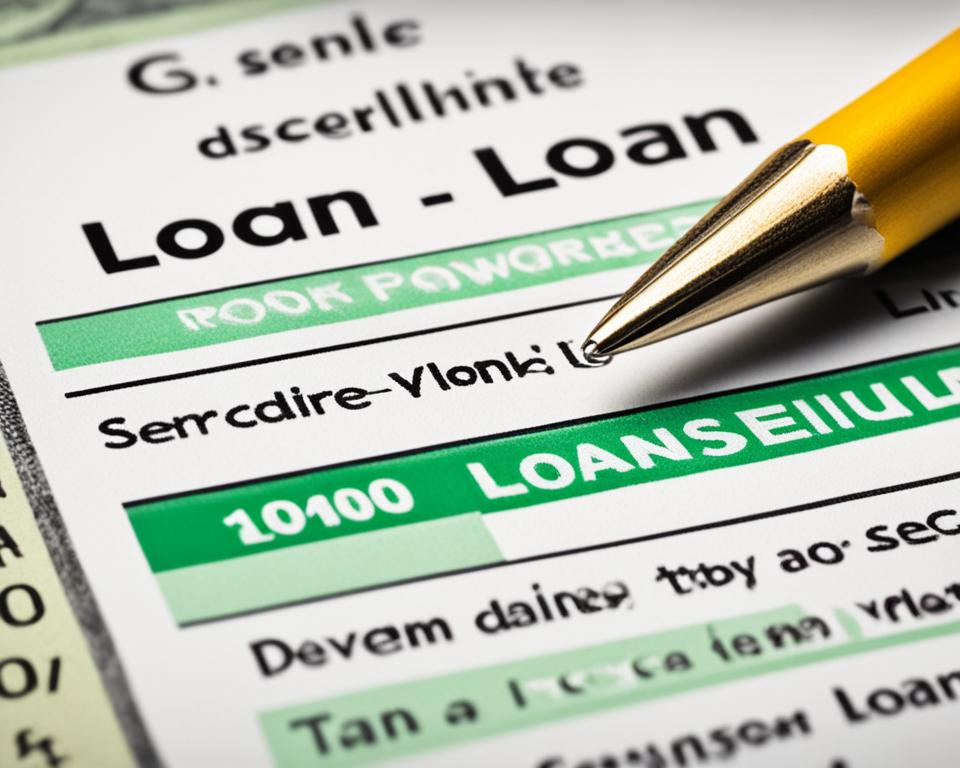Conventional Loans with Low Down Payment Options
With the dream of homeownership becoming increasingly out of reach for many people, conventional loans with low down payment options offer a glimmer of hope. Traditionally, conventional loans required a substantial down payment of 20% or more, making it difficult for some borrowers to enter the housing market. However, in response to the evolving needs of homebuyers, lenders now offer conventional loans with down payments as low as 3%. This reduction in the down payment requirement can be a game-changer for individuals and families looking to make their homebuying dreams a reality.
By lowering the down payment threshold, conventional loans become more accessible to a broader range of prospective buyers. This increased accessibility not only opens doors for first-time homebuyers but also provides opportunities for those who may have previously thought homeownership was unattainable. With a lower down payment requirement, individuals and families can allocate their savings toward other essential expenses associated with homeownership, such as closing costs or home improvements. Additionally, conventional loans generally offer competitive interest rates and flexible terms, making them a viable choice for borrowers seeking long-term security and financial stability.
FHA Loans for First-Time Homebuyers
For first-time homebuyers, FHA loans can be an attractive option. These loans are insured by the Federal Housing Administration, which allows lenders to offer more flexible loan terms and lower down payment requirements. With an FHA loan, first-time homebuyers can typically put down as little as 3.5% of the purchase price, making homeownership more accessible, especially for those who might not have a large amount of savings. Additionally, FHA loans often have more lenient credit score requirements, allowing borrowers with less-than-perfect credit to still qualify for a loan.
One of the major benefits of FHA loans is the ability to finance closing costs and other upfront expenses into the loan amount. This can help alleviate some of the financial burden that comes with purchasing a home. In addition, FHA loans offer fixed interest rates, providing borrowers with stability and predictability in their monthly mortgage payments. This can be especially valuable for first-time homebuyers who are still getting used to the responsibilities of homeownership. Overall, FHA loans provide a valuable pathway to homeownership for first-time buyers, allowing them to achieve their dreams with more flexibility and accessibility.
VA Loans for Veterans and Active Duty Military Members
One of the many benefits available to veterans and active duty military members is the opportunity to obtain a VA loan. These loans are backed by the Department of Veterans Affairs and offer favorable terms and conditions to those who have served our country. VA loans are specifically designed to help veterans and military personnel achieve their dream of homeownership.
One of the key advantages of VA loans is the absence of a down payment requirement. Unlike conventional loans, which typically require a down payment of at least 3-5% of the home’s purchase price, VA loans allow eligible borrowers to finance the full purchase price of the property without having to make a down payment. This can be a significant relief for veterans and military members who may not have substantial savings or are looking to conserve their funds for other financial needs. Additionally, VA loans often have competitive interest rates, further enhancing their affordability for borrowers.
USDA Loans for Rural and Suburban Homebuyers
USDA loans are a great option for rural and suburban homebuyers who may find it challenging to secure traditional financing. These loans are offered through the United States Department of Agriculture (USDA) and are designed to promote homeownership in areas with low population densities. One of the key advantages of USDA loans is their low or even zero down payment requirement, making it an attractive choice for buyers who may not have a substantial amount of savings. Additionally, USDA loans often come with competitive interest rates, further helping borrowers save money over the life of their loan.
In order to qualify for a USDA loan, specific eligibility requirements must be met. Firstly, the property being purchased must be located in an eligible rural or suburban area as defined by the USDA. Income limitations may also apply, meaning borrowers must have a total household income that falls within certain guidelines. These loans are typically aimed at low to moderate-income individuals and families, making homeownership more attainable for those who may not have high incomes. Additionally, potential borrowers must also meet standard credit and employment criteria to be eligible for a USDA loan.
HomeReady and Home Possible Loans for Low to Moderate Income Borrowers
For low to moderate income borrowers, HomeReady and Home Possible loans offer a viable option for achieving homeownership. These loan programs are designed to provide flexible and affordable financing options, making it easier for borrowers to qualify and purchase a home.
HomeReady loans, offered by Fannie Mae, allow borrowers to make a down payment as low as 3%, which can come from various sources, including gifts and grants. Additionally, this program takes into account the income of all household members, even if they are not on the loan. This can be beneficial for borrowers with non-traditional family structures or those who live with relatives or extended family members.
Home Possible loans, on the other hand, are offered by Freddie Mac and also provide low down payment options starting at 3%. Similar to HomeReady, this program considers the income of all household members, empowering borrowers with multiple sources of income to qualify more easily. Home Possible loans also offer flexibility in terms of the down payment, allowing borrowers to use their own funds, gifts, or grants.
Both HomeReady and Home Possible loans aim to promote homeownership for low to moderate income individuals by providing accessible and affordable financing options. These loan programs provide a way for borrowers to overcome some of the financial barriers that may otherwise prevent them from purchasing a home.
Non-Qualified Mortgage Loans for Borrowers with Unique Financial Situations
Non-Qualified Mortgage Loans cater to borrowers who have unique financial situations and may not meet the traditional lending criteria set by banks and financial institutions. These loans are designed to assist individuals who may have unconventional income sources or a history of credit challenges. Non-Qualified Mortgage Loans offer borrowers a chance to secure financing for their real estate needs, even if they do not meet the typical requirements.
These loans provide flexible options for borrowers who may not fit into the standard lending framework. Whether they are self-employed, have fluctuating income, or have past credit issues, Non-Qualified Mortgage Loans can provide an alternative pathway to homeownership. While these loans typically come with higher interest rates or larger down payment requirements, they allow borrowers to access the funds they need to purchase a property that suits their unique financial circumstances. Additionally, Non-Qualified Mortgage Loans can help those who have recently gone through a bankruptcy or foreclosure to rebuild their credit and embark on a new chapter of homeownership.
Home Equity Loans for Existing Homeowners
Home equity loans provide existing homeowners with a unique financing option that taps into the equity they have built in their homes over time. These loans allow homeowners to access a portion of the value of their property and use it for various needs. One of the main advantages of home equity loans is that they typically come with lower interest rates compared to other types of loans, making them a cost-effective solution for those in need of additional funds. Whether homeowners are looking to renovate their properties, consolidate high-interest debts, or cover unexpected expenses, a home equity loan can provide the necessary financial flexibility.
It is important to note that home equity loans are secured by the value of the property, and therefore, homeowners should exercise caution when considering them. Defaulting on a home equity loan can result in the loss of one’s home, as the lender has the right to foreclose on the property in order to recover their investment. Therefore, it is crucial for homeowners to carefully assess their financial situation and borrowing needs before opting for a home equity loan. Seeking guidance from financial advisors and mortgage professionals can help ensure that homeowners make informed decisions and select the best loan terms that align with their goals and circumstances.
Bridge Loans for Temporary Financing Needs
Bridge loans are a suitable option for those who are in need of temporary financing to bridge the gap between the sale of their current home and the purchase of a new one. These loans are designed to provide homeowners with the funds necessary to make a down payment on a new property before their current home has been sold. This can be particularly helpful for individuals who are eager to secure a new home but may be struggling to find a buyer for their existing property.
One of the advantages of bridge loans is that they provide borrowers with the flexibility and convenience of accessing funds quickly. Unlike traditional mortgage loans, which can often take several weeks or even months to process, bridge loans are typically approved and funded at a much faster rate. This allows homeowners to take advantage of time-sensitive opportunities in the real estate market, such as securing their desired property before it is sold to someone else. However, it is important to note that bridge loans often come with higher interest rates and fees compared to traditional mortgage loans, so borrowers should carefully evaluate the costs and benefits before proceeding with this type of financing.
Alternative Financing Options for Self-Employed Individuals
One of the challenges faced by self-employed individuals when it comes to securing financing is the lack of traditional employment documentation and steady income. However, despite these obstacles, there are alternative financing options available that cater specifically to the needs of self-employed borrowers.
One such option is a bank statement loan, which uses the borrower’s bank statements to verify income instead of traditional tax returns or pay stubs. This can be beneficial for self-employed individuals who may have fluctuating income or irregular payment schedules. The lender will typically review the borrower’s bank statements over a certain period of time to assess their income stability and determine their ability to repay the loan. Additionally, asset-based lending is another alternative financing option that relies on the borrower’s assets, such as real estate or investments, as collateral for the loan. This type of loan may be a viable choice for self-employed individuals who have valuable assets but may not meet the income requirements of traditional loans.
Different Types of Home Loans for Various Borrower Profiles
For borrowers with unique financial situations, non-qualified mortgage loans provide an alternative financing option. These loans are designed for individuals who may not meet the strict qualifying criteria of traditional lenders. Non-qualified mortgage loans can help self-employed individuals, retirees, or those with sporadic income to secure financing for their dream home. While these loans often come with higher interest rates and stricter terms, they offer flexibility in the application process and can be tailored to meet the unique needs of the borrower.
Existing homeowners looking to tap into the equity they have built in their homes may consider home equity loans. These loans allow borrowers to borrow against the value of their home, using it as collateral. Homeowners can use these funds for home improvements, debt consolidation, or other needs. Home equity loans typically come with lower interest rates than other forms of credit, making them an attractive option for those looking to access a large sum of money. However, it is important to carefully consider the risks associated with using a home as collateral and to ensure that the borrower can afford the additional loan payments.




